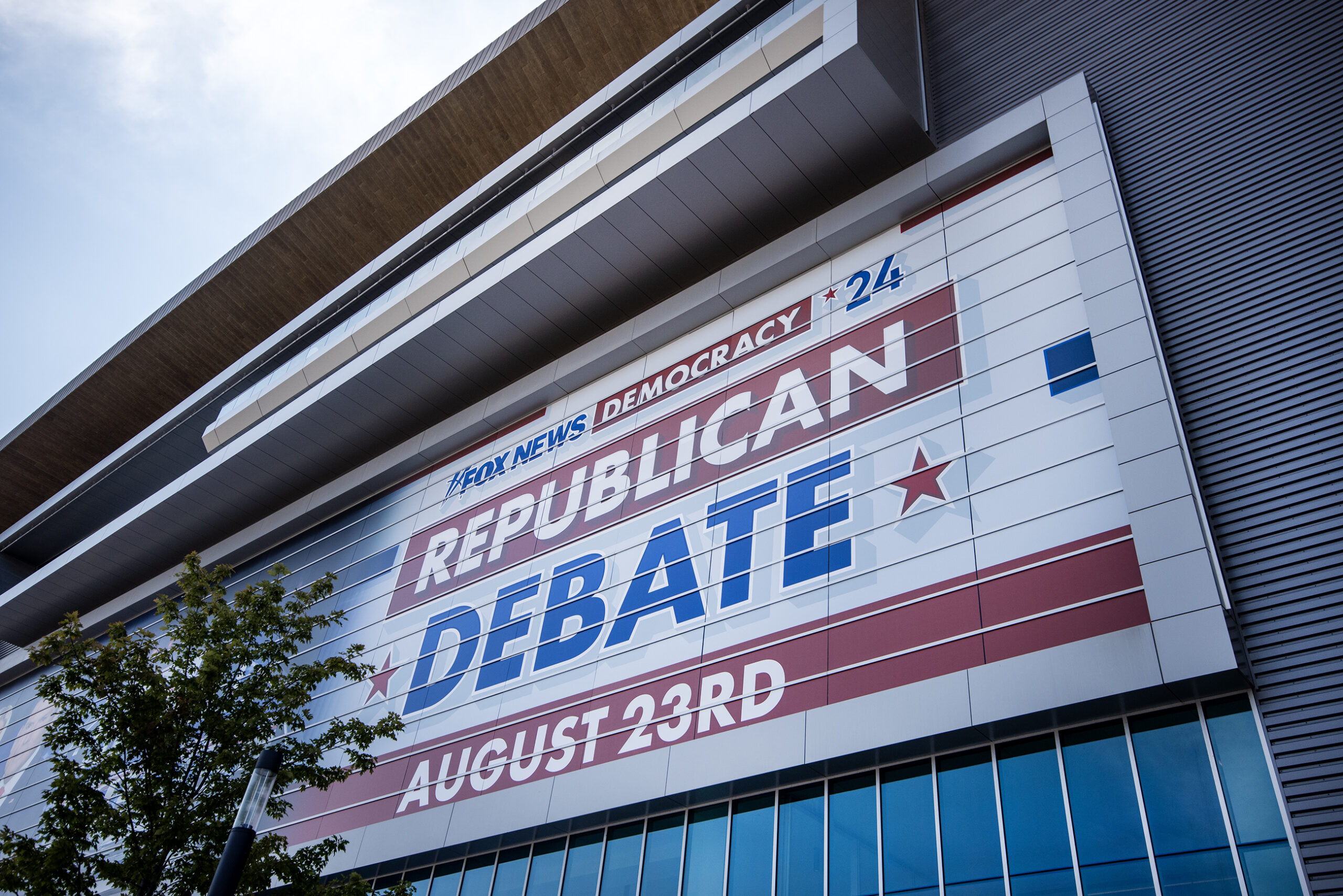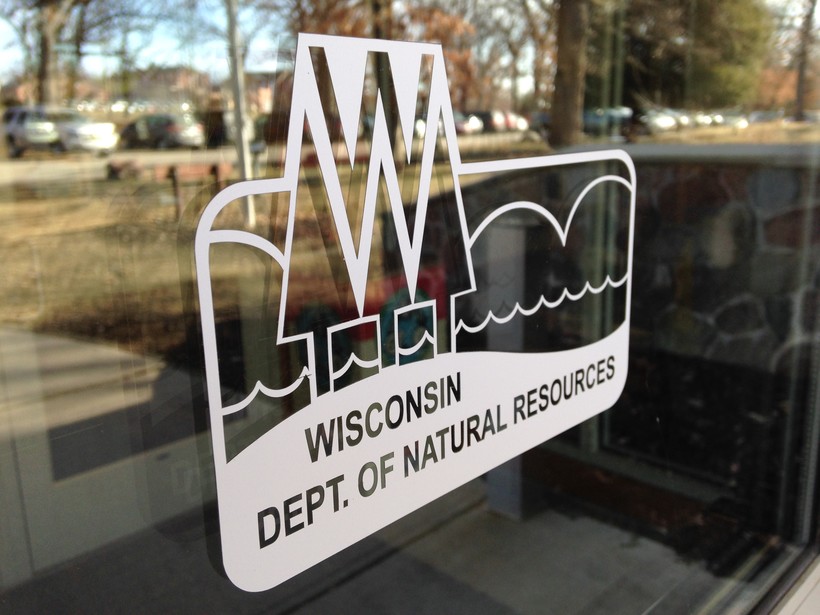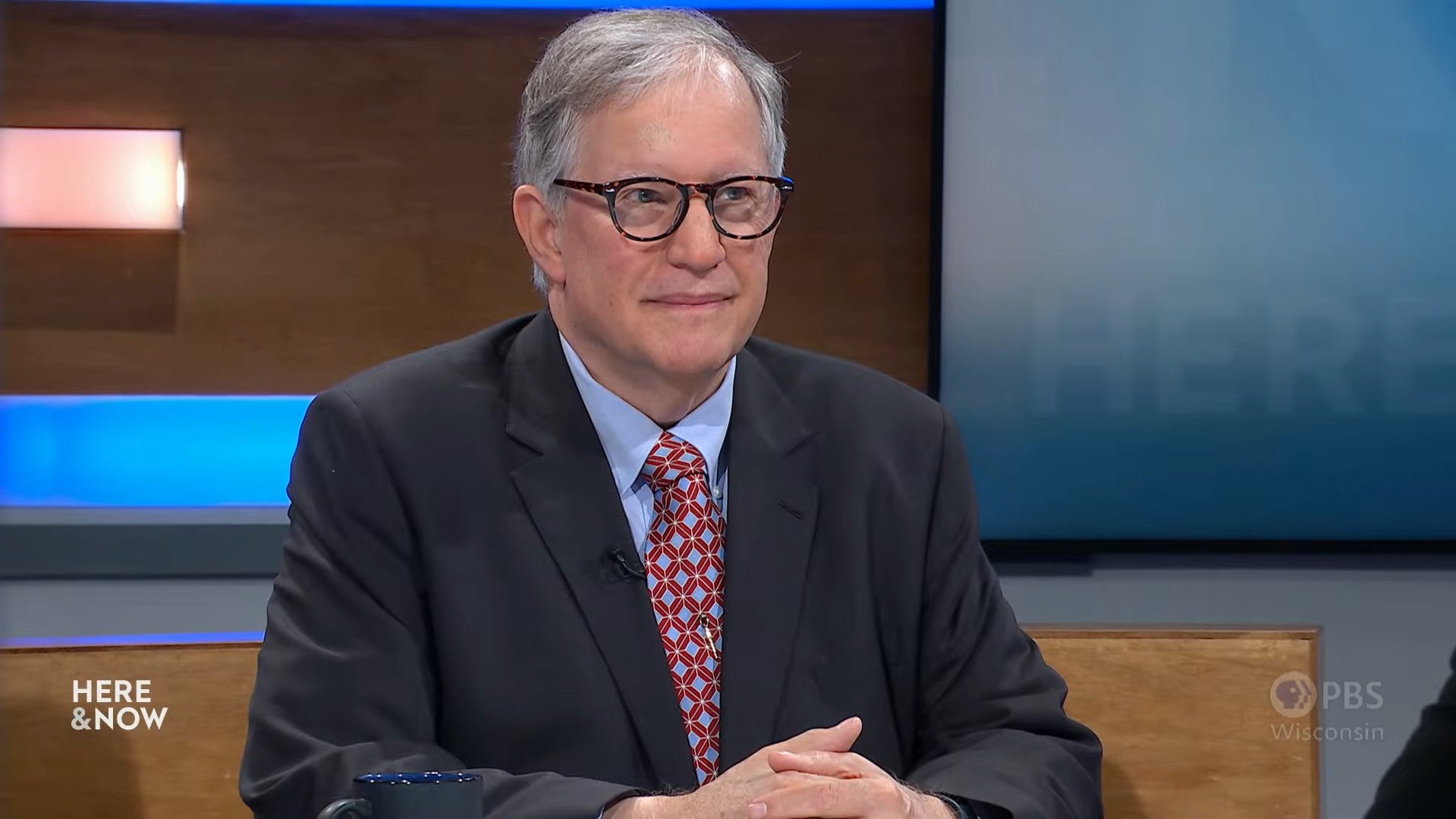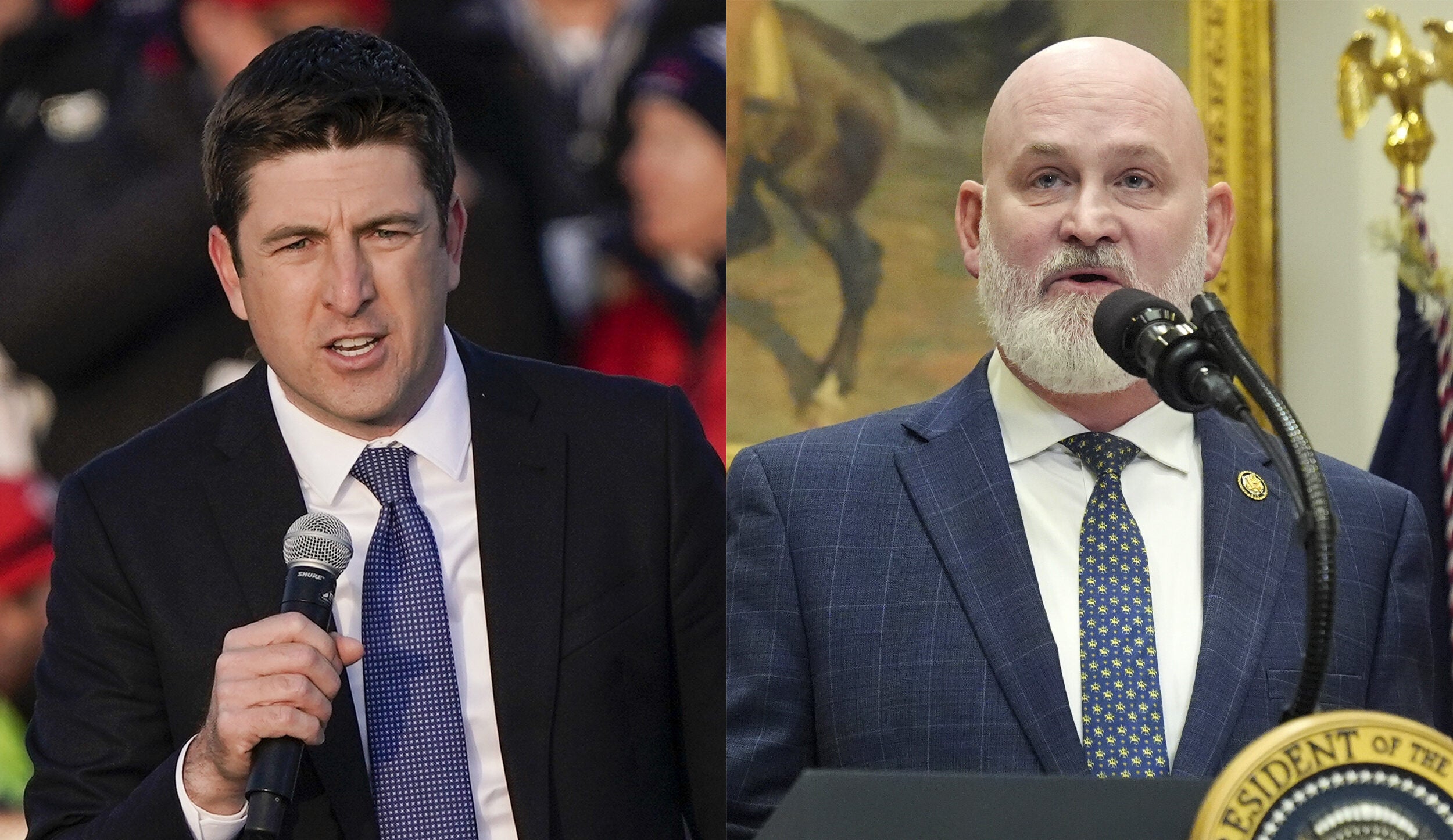Republican presidential candidates sparred over abortion, economic policy and the ongoing criminal indictments of former President Donald Trump at the first debate of the 2024 presidential cycle in Milwaukee on Wednesday night — but despite the event’s placement in a critical swing state, Wisconsin-specific issues were absent.
Instead, the eight candidates worked to build their individual profiles before a national televised audience and in the absence of Trump, who declined to participate in the event but stands at the head of the pack six months out from Wisconsin’s presidential primary.
They touched on a range of national issues, including border security and immigration, the economic impact of President Joe Biden’s first term in office, and foreign policy towards Russia and China.
News with a little more humanity
WPR’s “Wisconsin Today” newsletter keeps you connected to the state you love without feeling overwhelmed. No paywall. No agenda. No corporate filter.
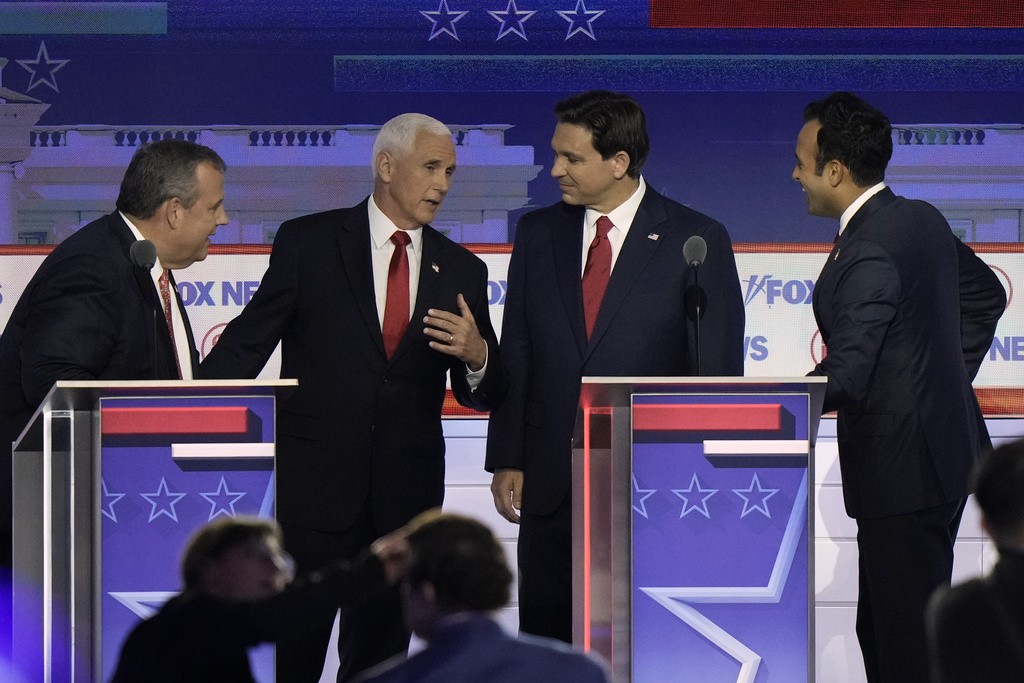
Culture war issues were also on the stage. Florida Gov. Ron DeSantis pointed to his policies significantly limiting the ways that race and gender can be discussed in schools, and Nikki Haley, the former governor of South Carolina, said she’d pass rules to ban transgender children from participating in girls’ sports.
And one year after Roe v. Wade was overturned, sending the legality of abortion back to the states and effectively outlawing abortion in Wisconsin, candidates skirted the question of whether they would impose a federal ban on abortion.
“I understand Wisconsin is going to do it different than Texas,” DeSantis said. “I understand Iowa and New Hampshire are going to do different, but I will support the cause of life.”
“I’m not terribly shocked by the lack of Wisconsin content,” Marquette political scientist Julia Azari told Wisconsin Public Radio in an email. “We’re not an early or influential primary state, and the discussion is national.”
Indeed, in his closing remarks, South Carolina Sen. Tim Scott turned to the cameras to request support from Iowa voters in their January caucuses.
Nevertheless, winning Wisconsin will be critical to any path to the White House. While some historic battleground states have become more clearly partisan — Iowa and Ohio are more Republican, while Georgia and Colorado more Democratic — national elections in Wisconsin are frequently decided by less than a percentage point.
That was true for both of former President Donald Trump’s races in Wisconsin. In 2016, he was the first Republican to win the state since 1984. He lost narrowly to President Joe Biden in 2020.
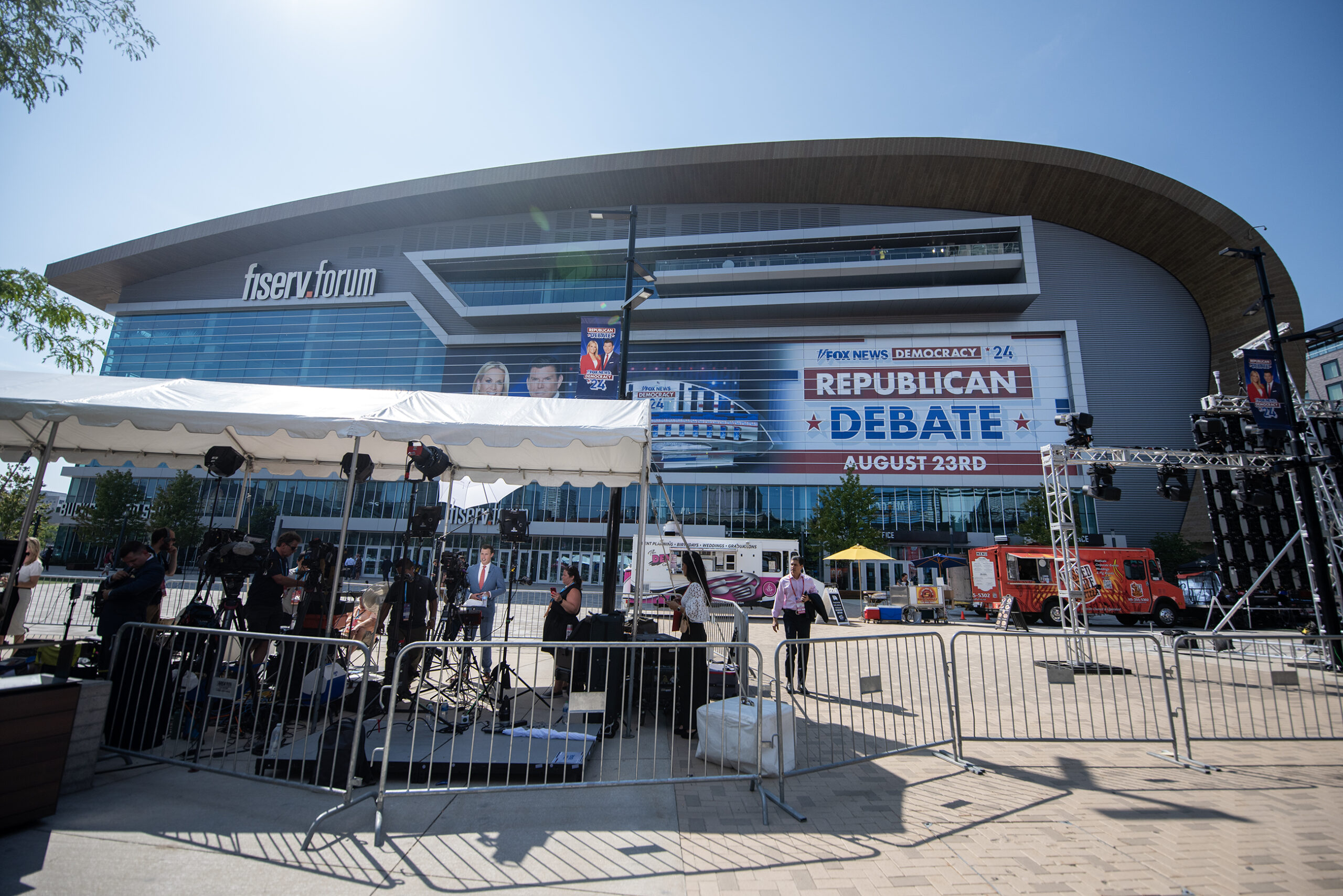
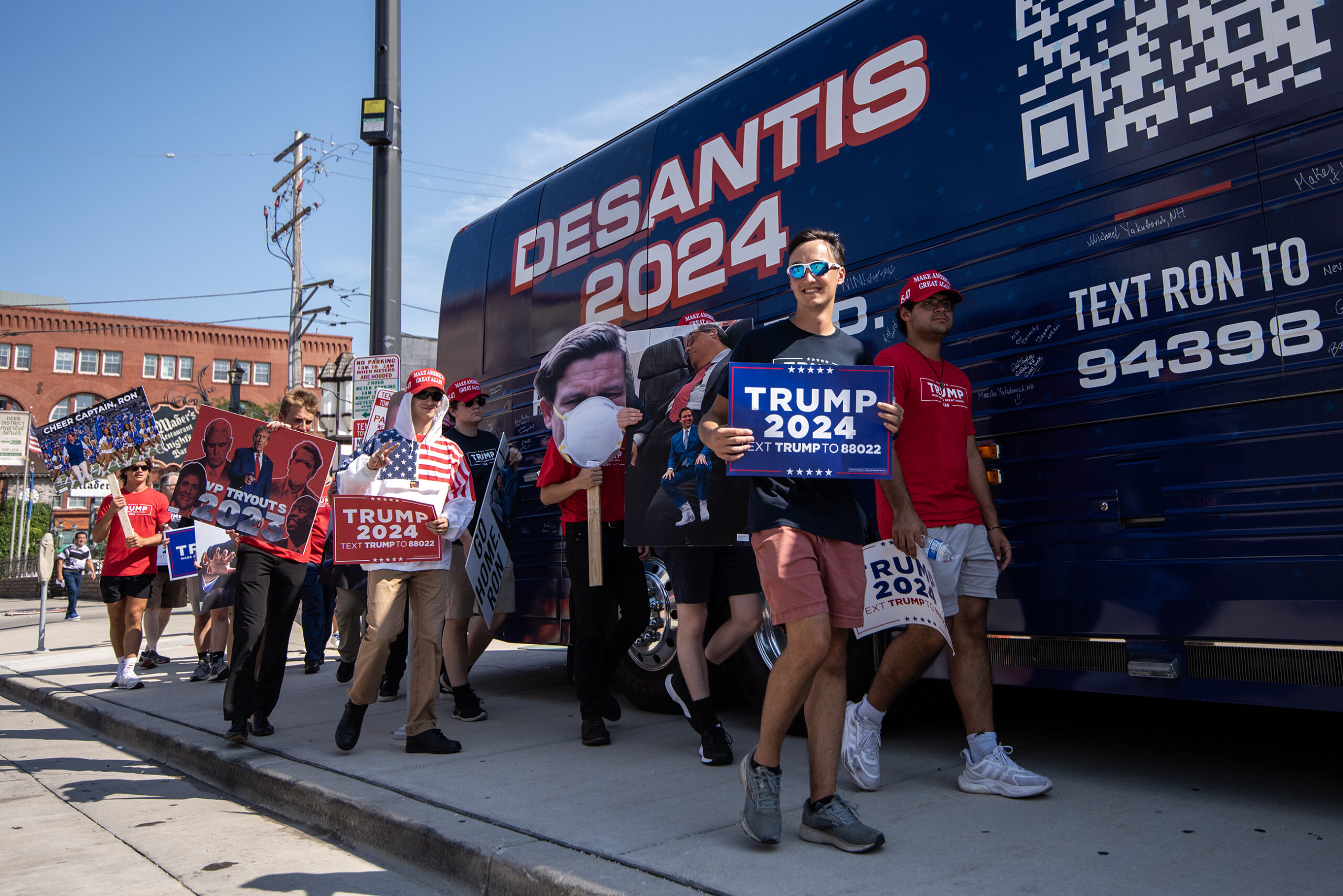
The importance of Wisconsin is evident by the quantity of campaign events planned in the state through this cycle. Wednesday’s debate took place at the Fiserv Forum, and was co-hosted by Young America’s Foundation, a project of former Gov. Scott Walker, in partnership with Fox News and the right-wing social media platform Rumble.
The Republican National Convention will take place in Milwaukee next summer. Meanwhile, President Joe Biden and his running mate, Vice President Kamala Harris, both visited Wisconsin this month.
Recent polling from the Marquette Law School has found that Trump and DeSantis are leading contenders among likely Republican voters in Wisconsin.
But Trump did not participate in the debate. Instead, he sat for an interview with former Fox News host Tucker Carlson, which was released Wednesday evening on the social media network X, formerly known as Twitter.
Trump currently faces four criminal indictments for his alleged efforts to overturn the outcome of the 2020 election — efforts that hinged in part on undermining Biden’s victory in Wisconsin.
Trump supporters, protesters descend on Milwaukee
The nearly 100-degree weather meant fewer visitors than expected in the Deer District outside of Fiserv Forum during the day Wednesday, but hundreds of people waited in line for their coveted ticket to the main event.
And even though former President Donald Trump wasn’t in Wisconsin, he was top of mind.
“He’s on Tucker (Carlson), my favorite show,” said Rocco LaMacchia, of Kenosha. “So now I want to hear from the rest of them — not what the other guy did wrong. I want them to tell me how to fix this country.”
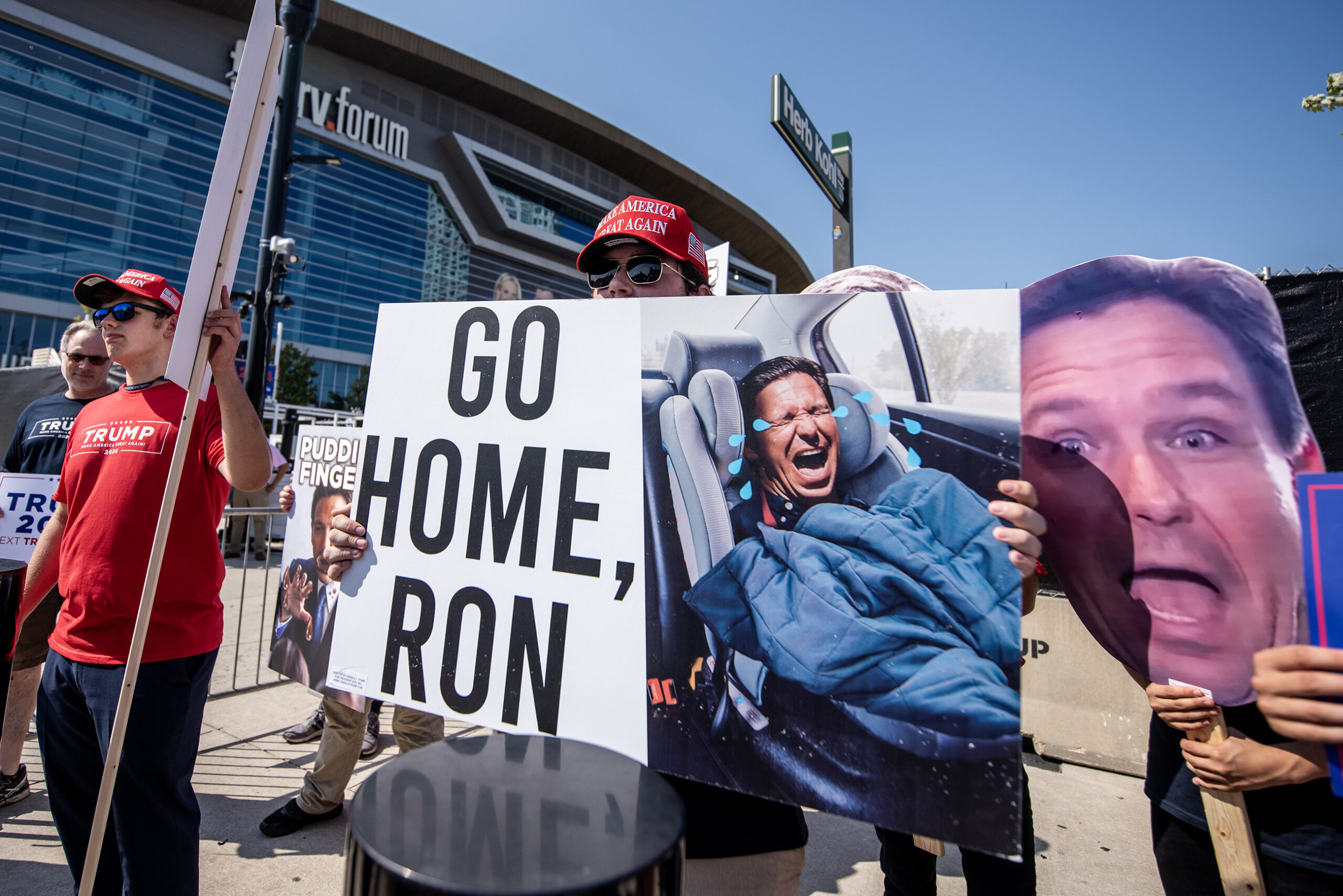
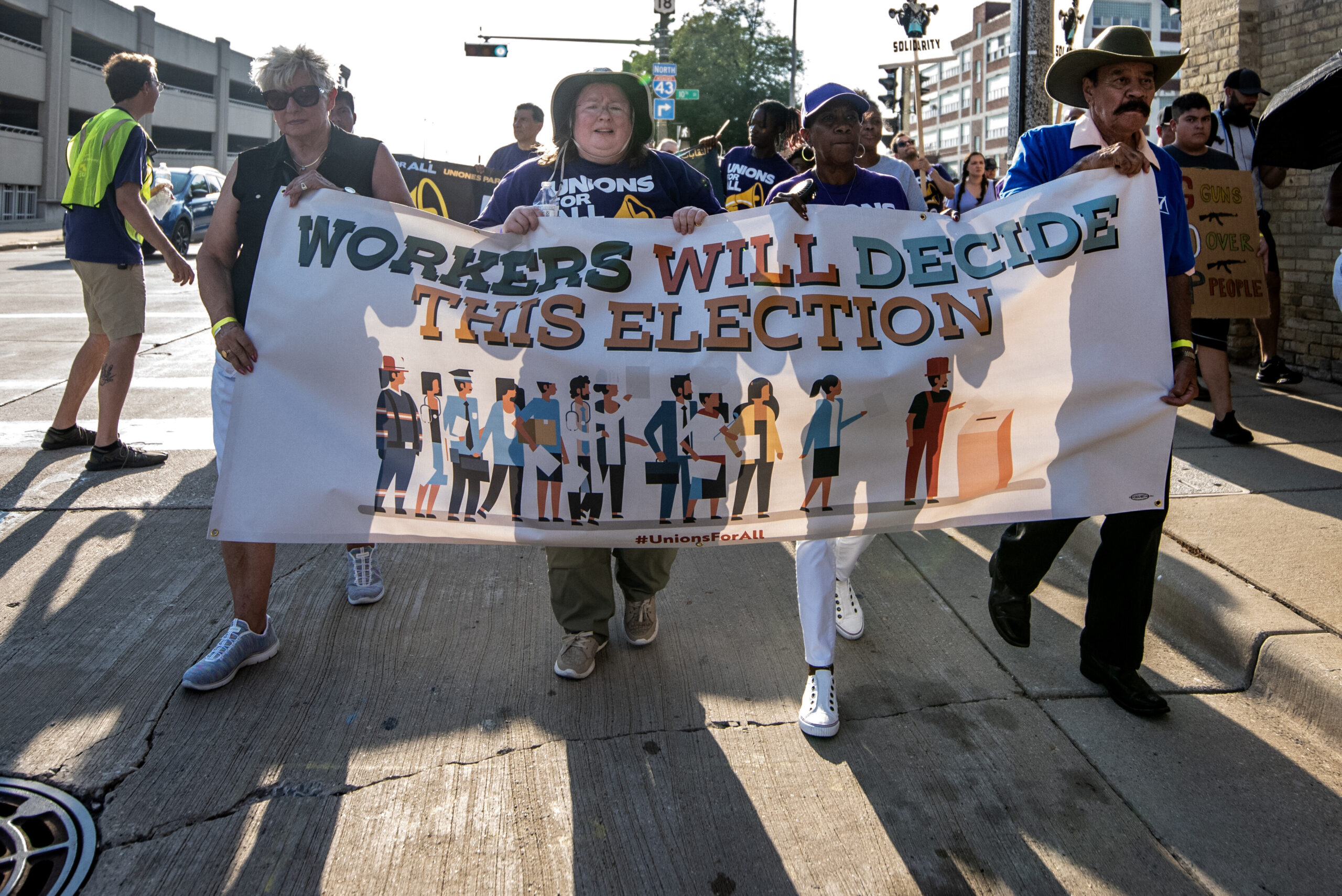
About two dozen Trump supporters from the Chicago suburbs arrived wearing Make America Great Again hats and T-shirts and holding signs for the former president.
The group praised Trump for not participating in the RNC debate and said it was their job to make sure he’s not “shut out” of getting the Republican nomination.
“He’s a genius for not being here because he’s going to steal viewership,” said Karen Tirio of Woodstock, Illinois. “We’re here to show the RNC and the media that there is support for Trump.”
More than 400 Service Employees International Union members from a half-dozen states were in Milwaukee to protest the debate.
In the afternoon, they heard from Democratic U.S. Rep. Gwen Moore, D-Milwaukee, Democratic National Committee Chair Jamie Harrison and former Lt. Gov. Mandela Barnes and then marched about a half mile to the Fiserv Forum.
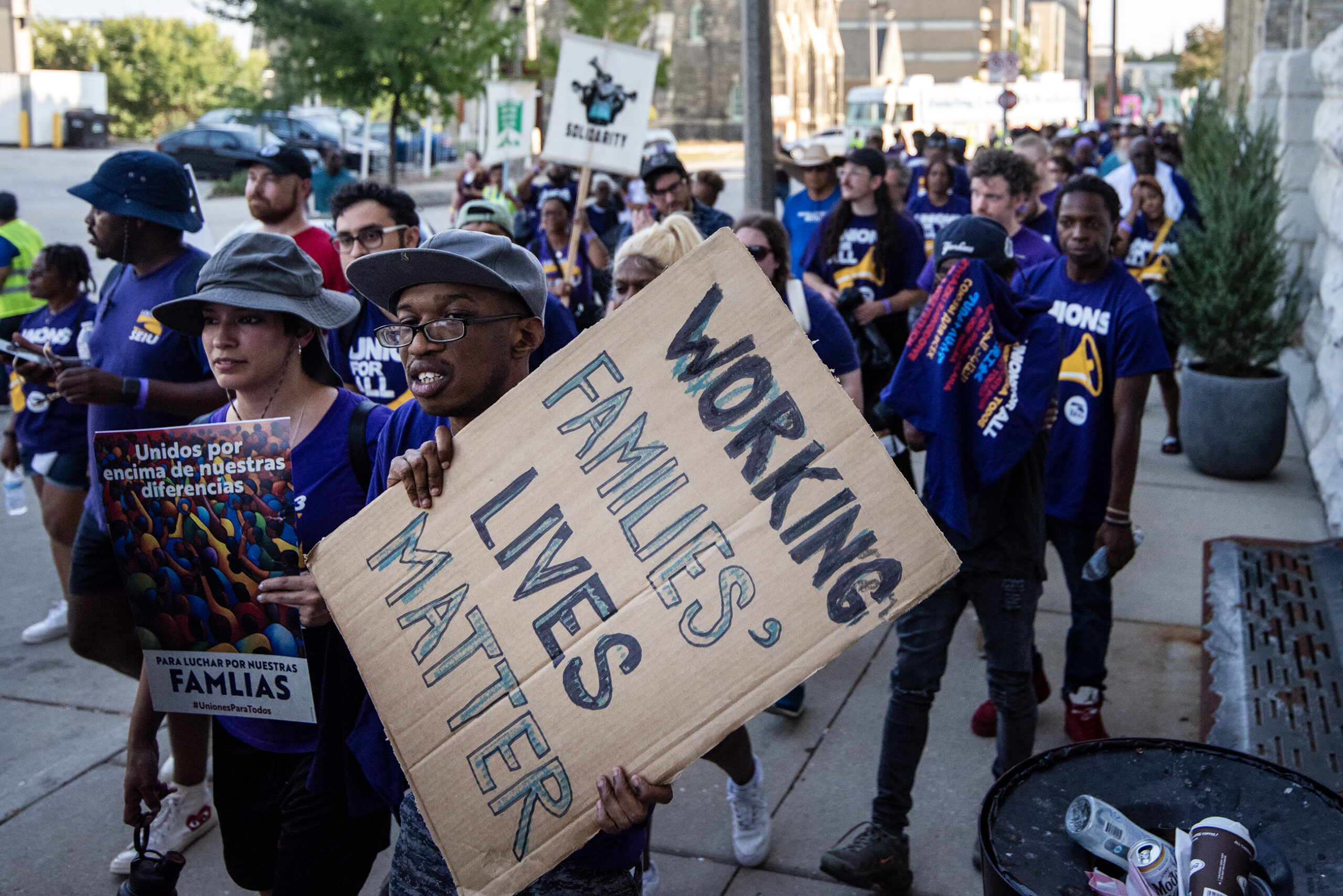
Terry Lee, national communications director for SEIU, said the group will be at Republican events over the next year to make their voices heard. Lee said many trips are planned to Wisconsin over the next year.
“Wisconsin is the heart of the Midwest, and if we lose the heart, we can’t function and expect to win the presidency,” Lee said. “Wisconsin is key and important. It is a purple state that we have been able to win since 2016, but it is vital and key to the path to the White House.”
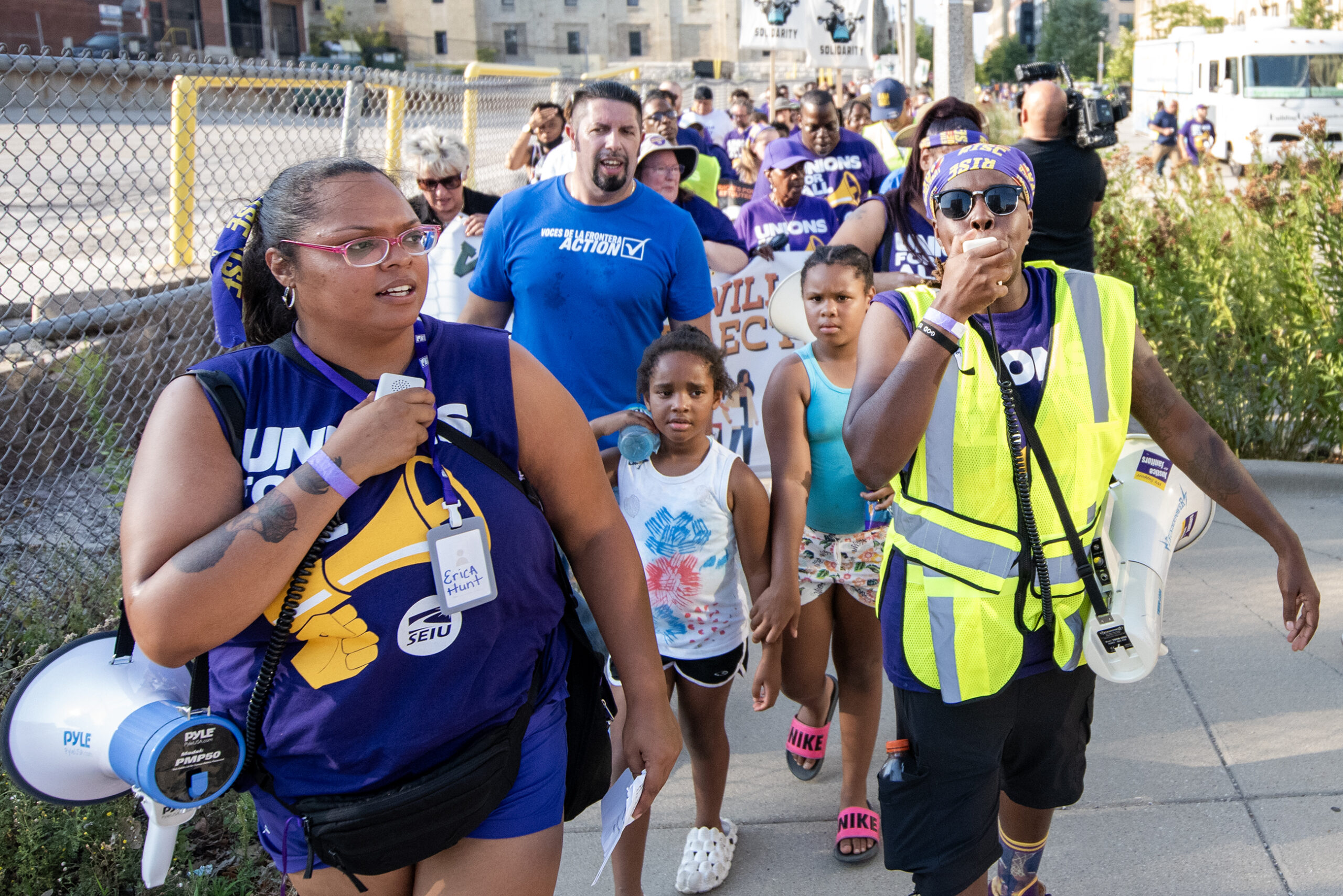
Wisconsin Public Radio, © Copyright 2025, Board of Regents of the University of Wisconsin System and Wisconsin Educational Communications Board.

